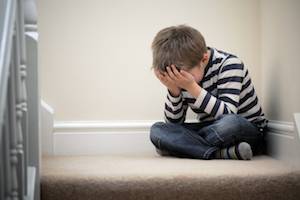Equitable Distribution of Marital Property in an Illinois Divorce
 Divorce is common, an outcome dissolving between 40 and 60% of marriages in the United States. Importantly, the laws governing divorce are state-specific, meaning that, if you were married in Illinois, live in Illinois, and will divorce in Illinois, it will be Illinois law that applies to the division of marital property. When dividing property during divorce, Illinois law utilizes a principle of “equitable distribution.”
Divorce is common, an outcome dissolving between 40 and 60% of marriages in the United States. Importantly, the laws governing divorce are state-specific, meaning that, if you were married in Illinois, live in Illinois, and will divorce in Illinois, it will be Illinois law that applies to the division of marital property. When dividing property during divorce, Illinois law utilizes a principle of “equitable distribution.”
Equitable distribution demands that all marital property – property acquired by either spouse while married – be divided fairly and equitably. Importantly, however, “fairly and equitably” does not necessarily equate to “equally.” Rather, the courts will attempt to divide property in a fair and just manner.
Marital Property May Include More Than You Realize
Cash, cars, and houses are three items that may spring to mind when contemplating the assets of a marriage. However, marital property often contains a far greater diversity of assets (and, in many cases, liabilities such as credit card debts) than a bank balance, residence, and means of transportation.
To get an idea of other assets that may be considered marital property, think of the full picture of your employment-related income and benefits for the year 2017. Besides a paycheck, …
Illinois Soon Entering Its Third Year as a “No-Fault” Divorce State
 In January 2018, Illinois will begin its third year of “no-fault” divorce under state law. When spouses are considering divorce, it is important to understand this philosophical and legal principle that governs divorce in the state.
In January 2018, Illinois will begin its third year of “no-fault” divorce under state law. When spouses are considering divorce, it is important to understand this philosophical and legal principle that governs divorce in the state.
Irreconcilable Differences Are All That Is Required in a No-Fault Framework
On January 1, 2016, “irreconcilable differences” became the sole legal grounds for the dissolution of a marriage in Illinois. While irreconcilable differences could be considered possible grounds for divorce prior to 2016, they were not the sole grounds. For many years, fault-based grounds (e.g. adultery or mental cruelty) were considered relevant as well. However, this is no longer the case. Under current state law, irreconcilable differences, which speak to the irretrievable breakdown of the marriage – the point at which present or future attempts at reconciliation become impracticable and inconsistent with the best interests of the family – is all that needs to exist for a marriage to be properly dissolved in the state of Illinois.
Agreement on Irreconcilable Differences Hastens a Divorce Decree
While both spouses do not need to agree that irreconcilable differences exist for a divorce to be obtained in Illinois, agreement allows for the pre-divorce decree waiting period imposed …
Understanding the Legal Question of a Parent’s Fitness to Raise a Child
 When a divorce is contentious and can only be resolved through litigation rather than mediation, allegations concerning a parent’s “fitness” to raise a child can often be a flash point. “You are not fit to raise our child” are words that cut deep and may turn an already hostile process into the most bitter of contests. If you believe that your ex-spouse is unfit to raise your child, know that parental fitness is a legal question. In other words, you cannot unilaterally decide that your ex-spouse is unfit as a parent. Lack of fitness is a multi-factor inquiry that is considered formally and has important legal ramifications.
When a divorce is contentious and can only be resolved through litigation rather than mediation, allegations concerning a parent’s “fitness” to raise a child can often be a flash point. “You are not fit to raise our child” are words that cut deep and may turn an already hostile process into the most bitter of contests. If you believe that your ex-spouse is unfit to raise your child, know that parental fitness is a legal question. In other words, you cannot unilaterally decide that your ex-spouse is unfit as a parent. Lack of fitness is a multi-factor inquiry that is considered formally and has important legal ramifications.
Illinois Law Provides Criteria By Which to Establish If a Parent Is Unfit
On the ground in the real world, there are words that speak clearly to a lack of parental fitness: abuse, addiction, incarceration, and psychological instability, to name but a few. These blights on the welfare of a child are the true metrics by which the state of Illinois evaluates whether one or both parents of a child are legally unfit to have parental responsibility for their child. Here, the toughest of questions are asked:
- Does the parent have
Holiday Parental Responsibility and Parenting Time After Divorce
 Thanksgiving is only a few weeks away, and many families are currently making plans for the holidays. For recently divorced parents and their children, this season can be a stressful and even contentious time of year. The transition to living in separate households and abiding by custody and visitation arrangements can be difficult when children are used to spending holidays under the same roof. While parents and children need time to adjust to new arrangements, parents can decrease post-divorce stress and anxiety during the holiday season by staying informed about their parental responsibility rights.
Thanksgiving is only a few weeks away, and many families are currently making plans for the holidays. For recently divorced parents and their children, this season can be a stressful and even contentious time of year. The transition to living in separate households and abiding by custody and visitation arrangements can be difficult when children are used to spending holidays under the same roof. While parents and children need time to adjust to new arrangements, parents can decrease post-divorce stress and anxiety during the holiday season by staying informed about their parental responsibility rights.
Child Custody vs. Parental Responsibility
In educating yourself about Illinois child custody, it is important to know that, though the state has adopted the Uniform Child Custody Jurisdiction and Enforcement Act (UCCJEA), which most states have used to define jurisdictional matters related to child custody, it uses the specific terminology of “allocation of parental responsibility” with regard to laws and processes concerning custody. Here, the thinking is that the new terminology at once resists contentiousness and promotes collaboration in arriving at a custody arrangement that is agreeable to divorced parents and children alike.
Parental Responsibility and Parenting Time
In Illinois law, parental responsibility concerns the right …
Crafting a Mutually Agreeable Parenting Plan Under Illinois Law
 Divorce is a foundation-rupturing event, especially for spouses who have children together. Whole worlds are upended for all involved – parents, children, and even grandparents and friends. Day-to-day life, living arrangements, holiday plans, and so much more are all subject to change in the wake of the dissolution of a marriage. This is especially the case when both spouses move out of what had been the family home or apartment, whether to new residences in the same town or city, or to a new state or even new country.
Divorce is a foundation-rupturing event, especially for spouses who have children together. Whole worlds are upended for all involved – parents, children, and even grandparents and friends. Day-to-day life, living arrangements, holiday plans, and so much more are all subject to change in the wake of the dissolution of a marriage. This is especially the case when both spouses move out of what had been the family home or apartment, whether to new residences in the same town or city, or to a new state or even new country.
When the spouses have children, parental responsibility (formerly known as child custody) must be allocated between the parents. In some cases, one spouse is awarded primary parental responsibilities in the areas of healthcare, education, religion, and extracurricular activities. In most cases, however, parental responsibility is shared between the parents.
As you are surely already aware if you divorced, separated, or even considering a divorce or separation, working out an agreement for the allocation of parental responsibilities can be a complex matter, and in some instances, it can be an unfortunately contentious process. Here, a court approved parenting plan is a must. With so much already on your plate in terms of …






